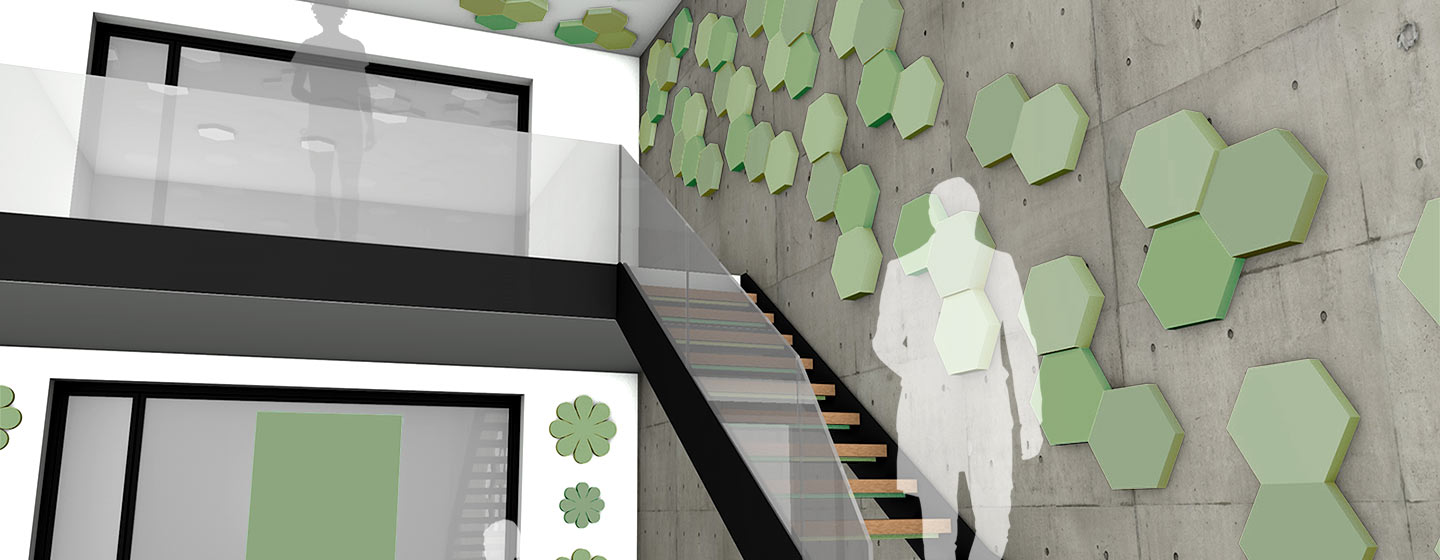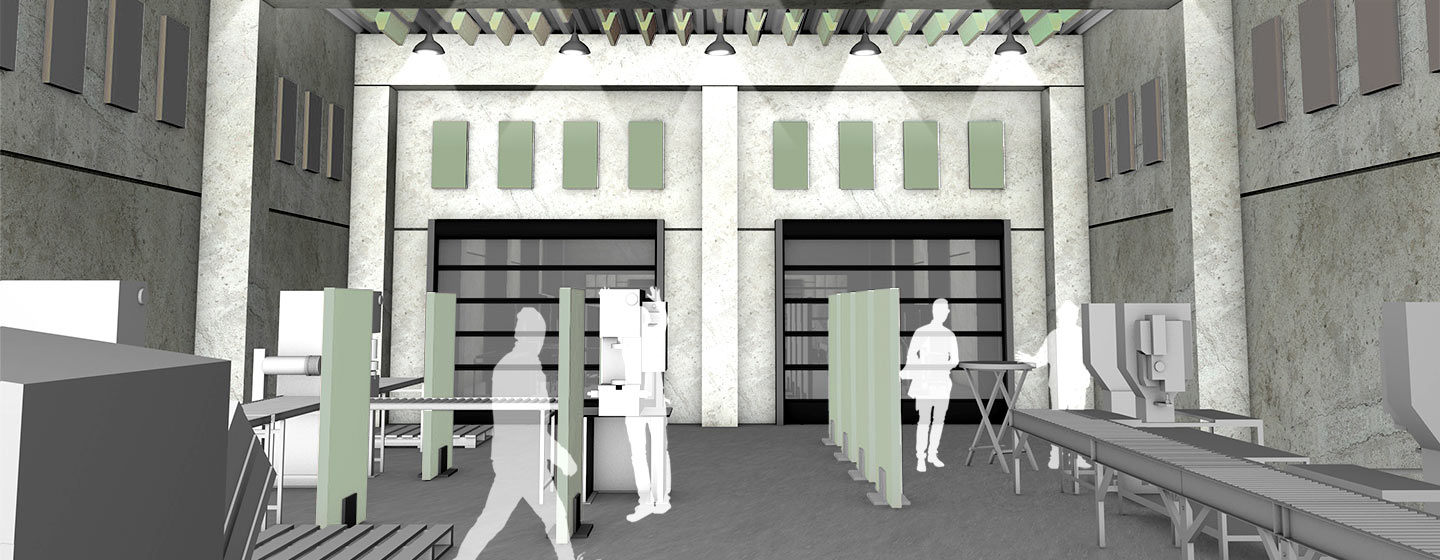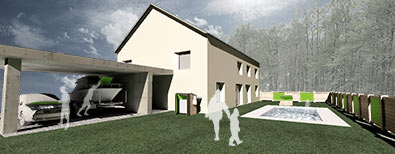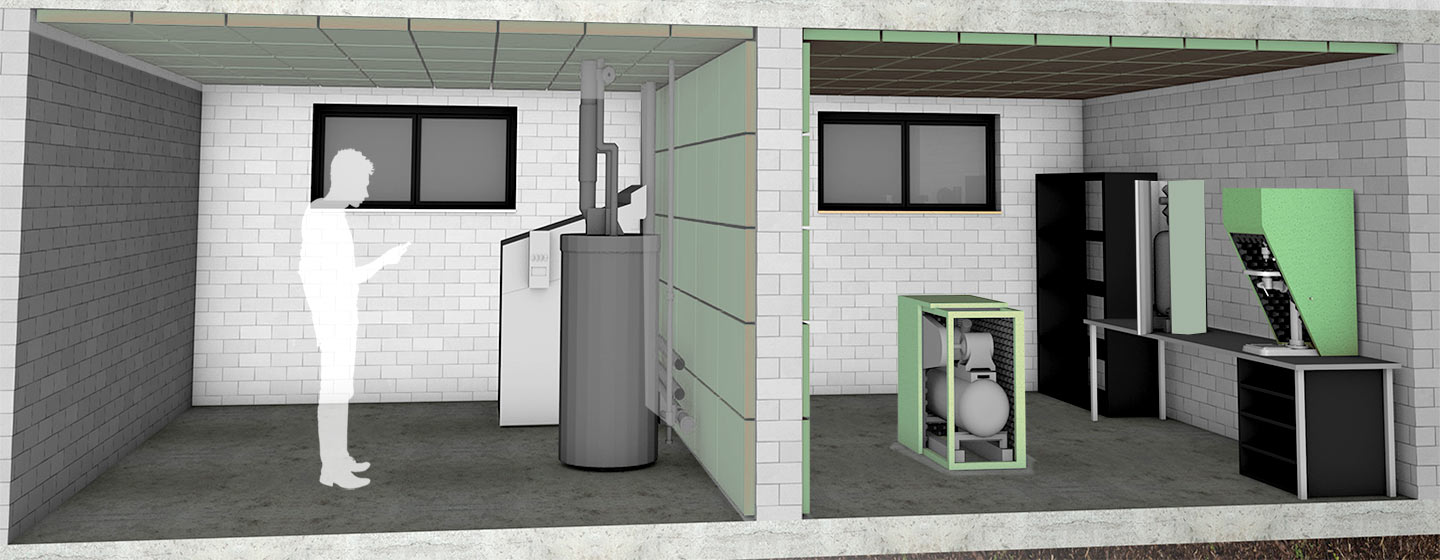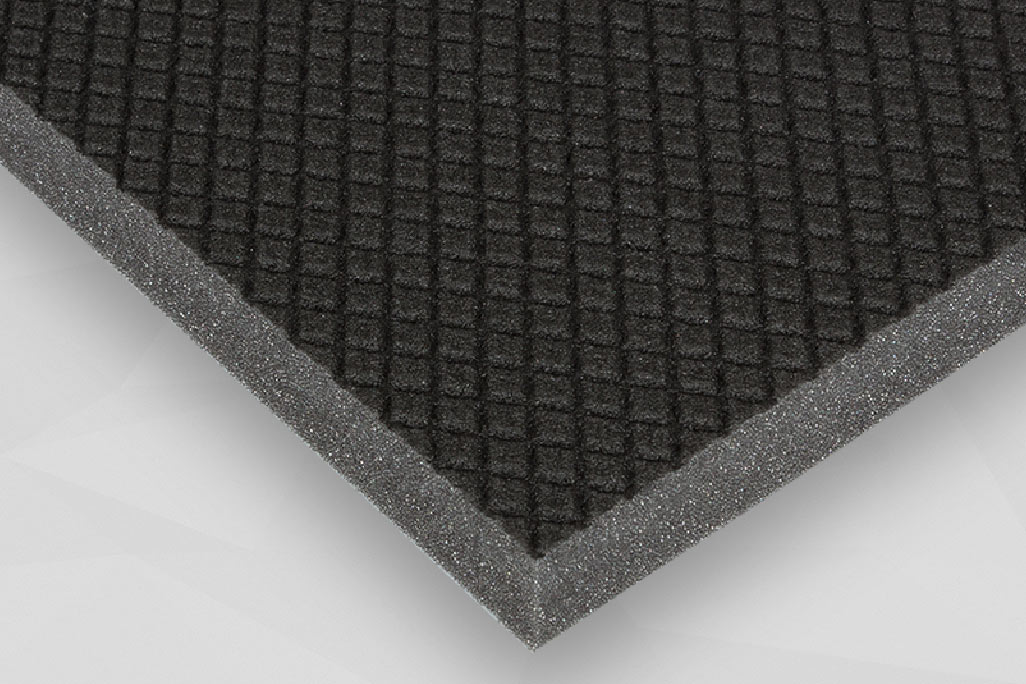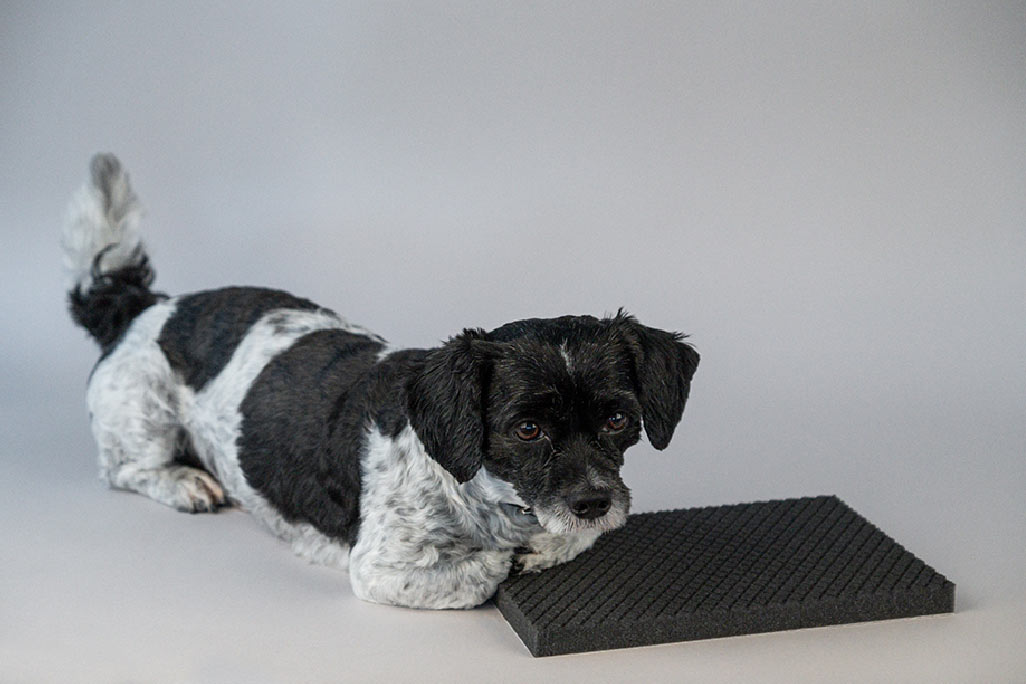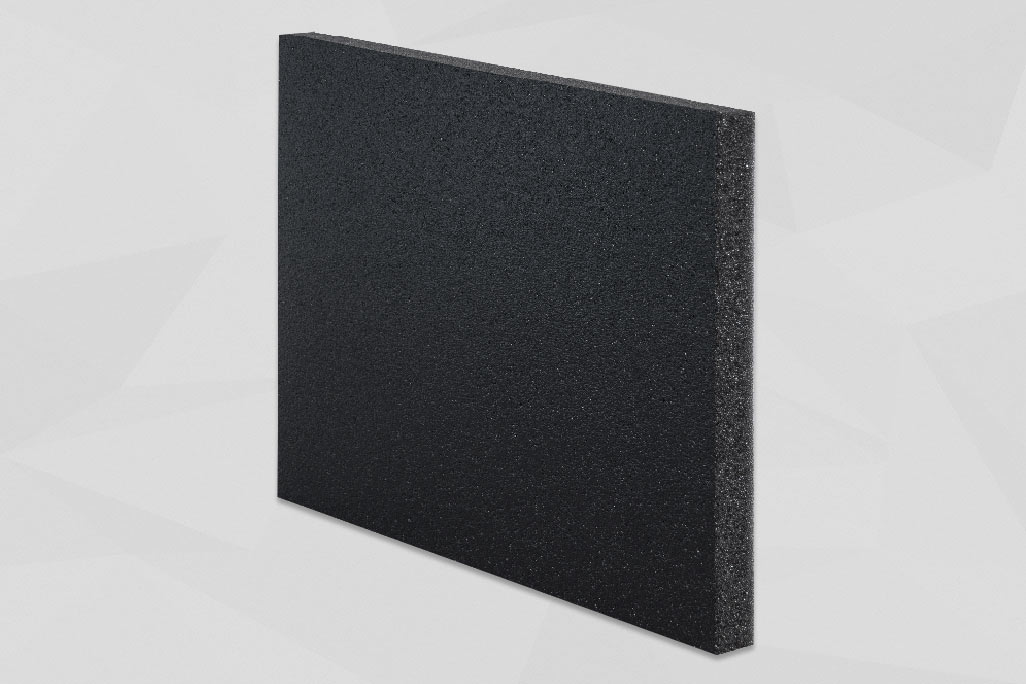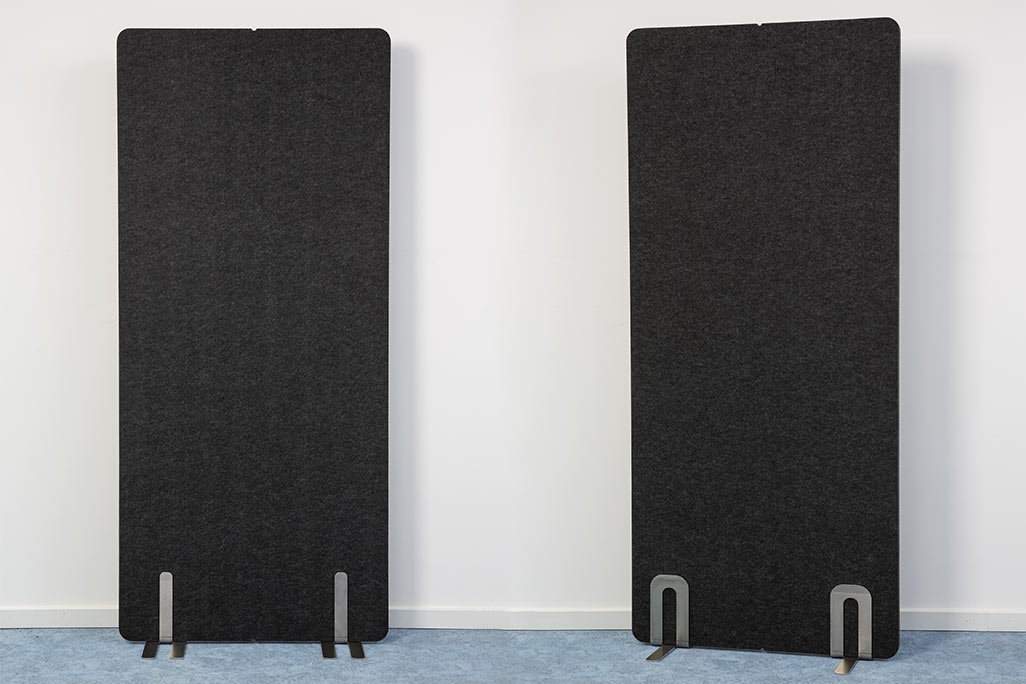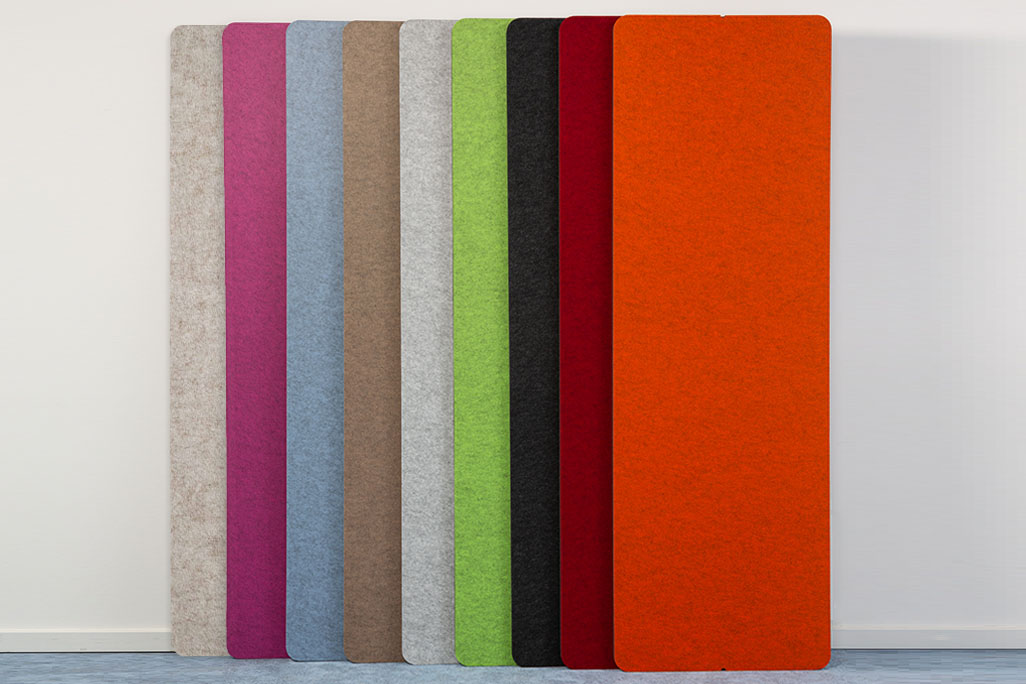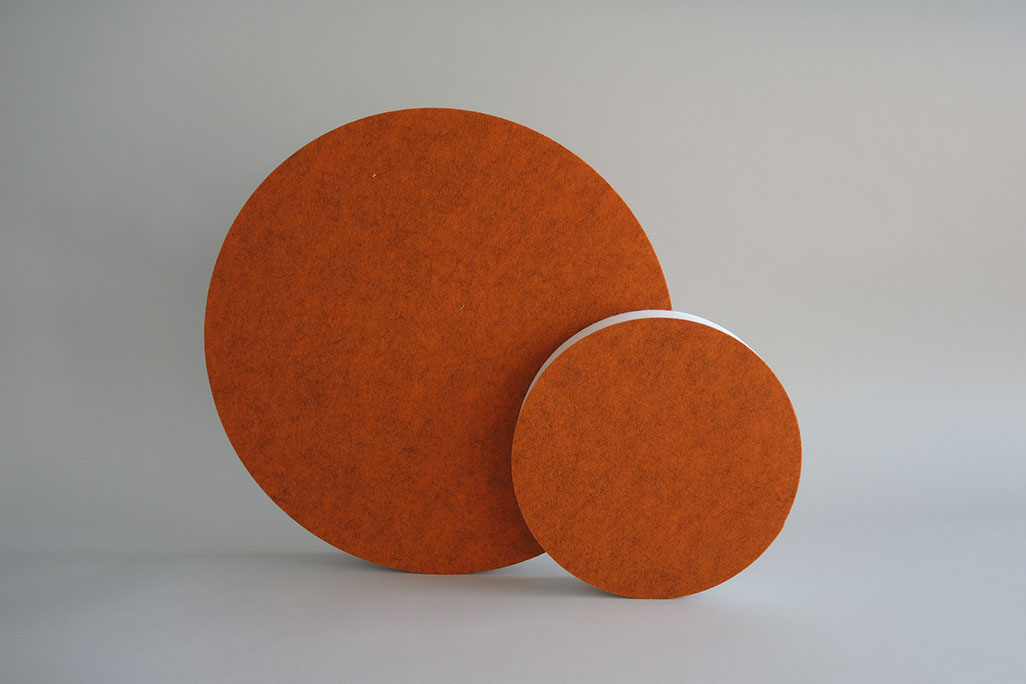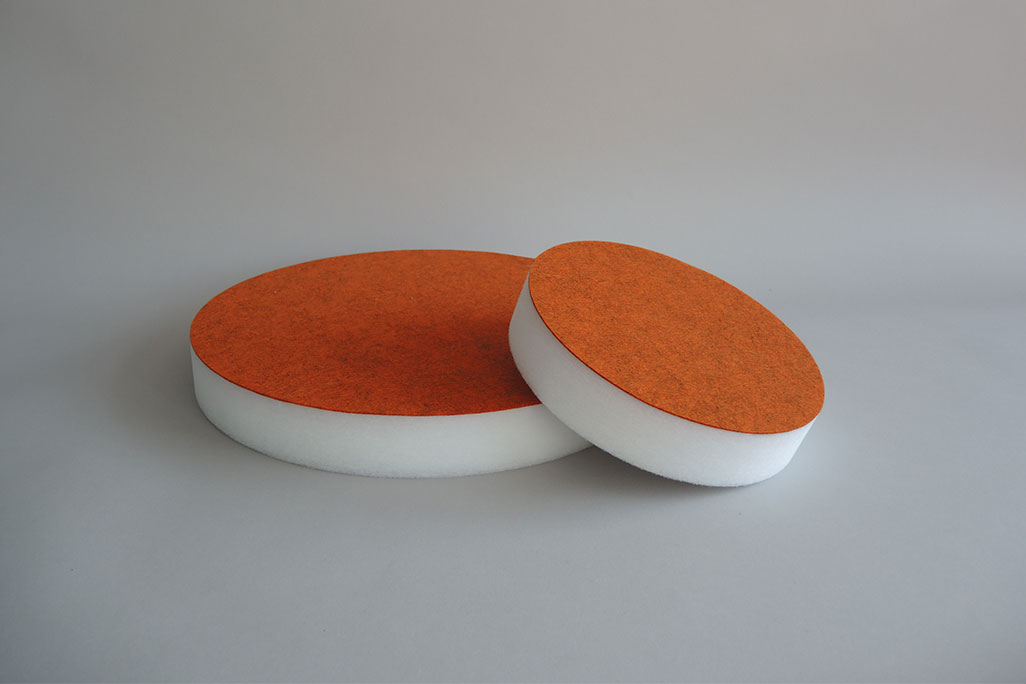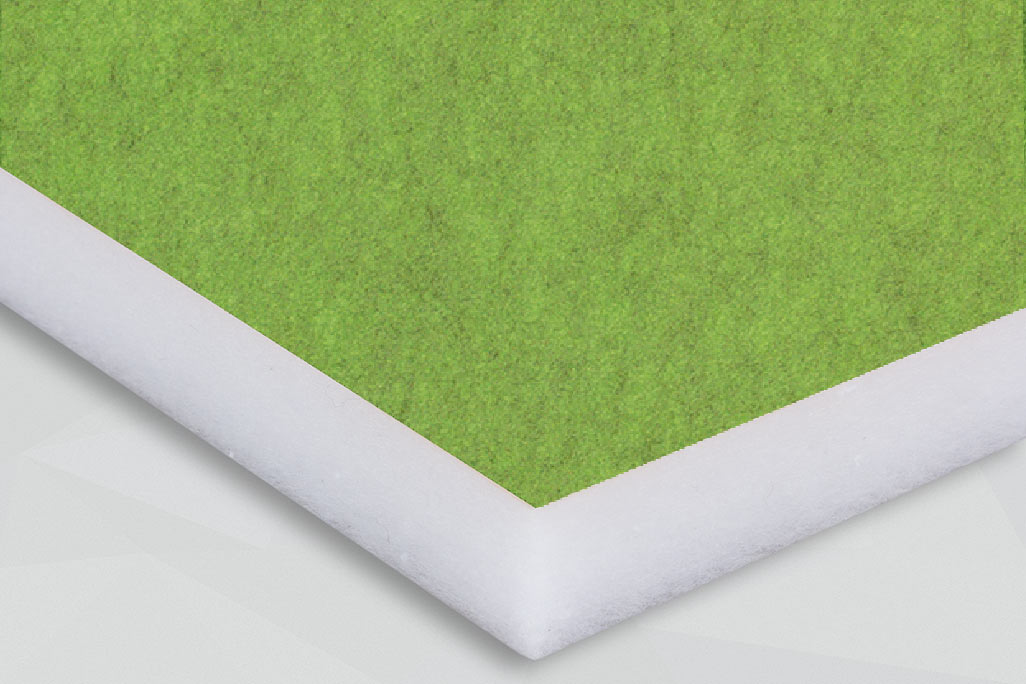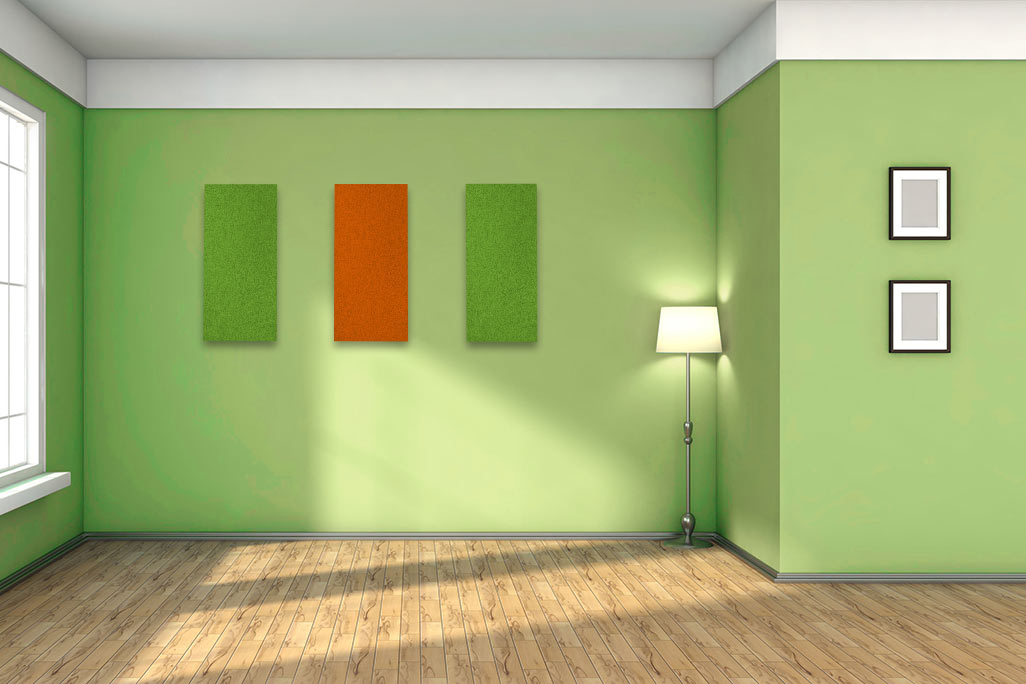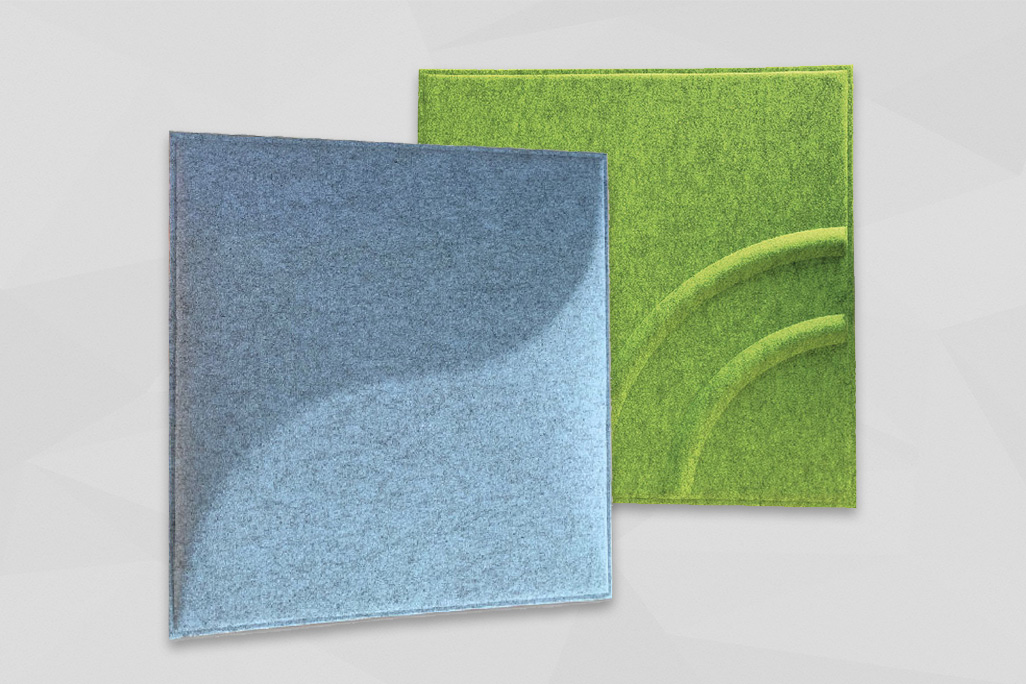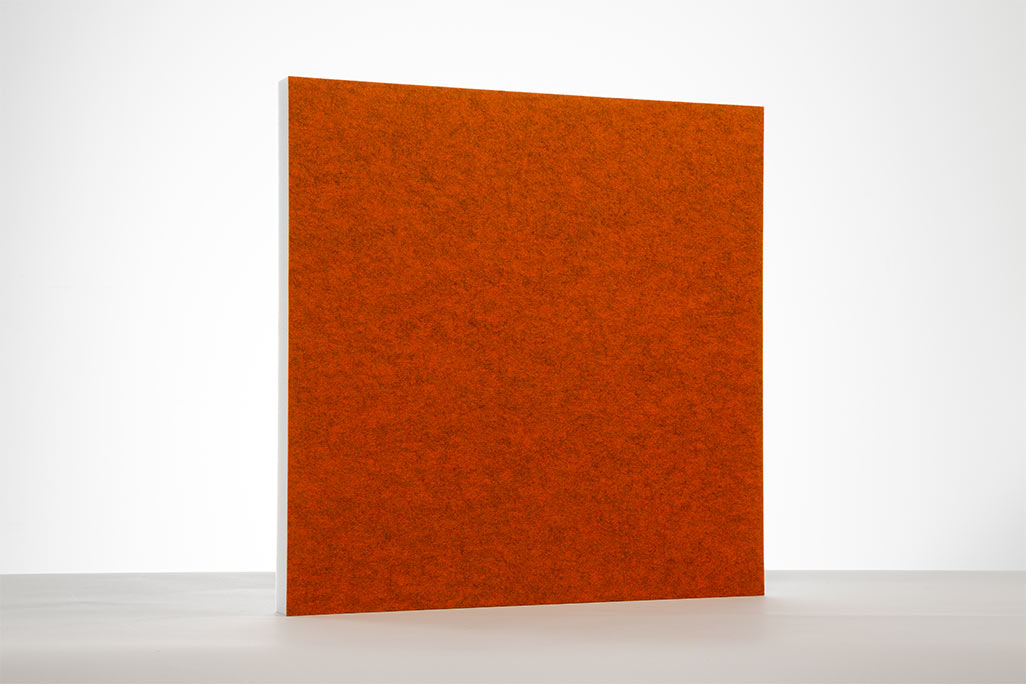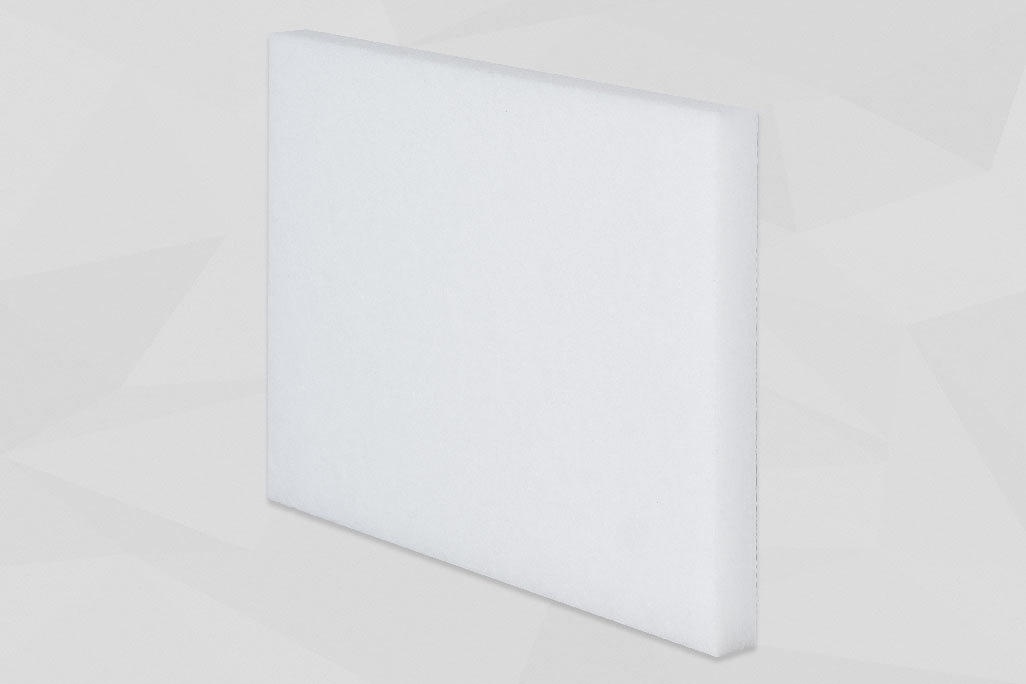Zvukově pohltivé materiály
Pro snížení hladiny zvuku doporučujeme našim zákazníkům instalovat na strop nebo do horní části stěn tlumiče zvuku. Jako pohlcovače zvuku lze použít různé výrobky v závislosti na požadavcích na vzhled nebo stabilitu.
Pro dobrou akustiku místnosti a snížení dozvuku obvykle stačí částečné obložení. V závislosti na výšce místnosti a počáteční hladině zvuku se doporučuje přibližně 30 až 50 % podlahové plochy místnosti. Toto opatření výrazně zkracuje dobu dozvuku, a tím i hladinu zvuku. Tím se zvýší srozumitelnost řeči, což činí místnost mnohem příjemnější pro všechny.
Obsah: 0.5 m² (1 204,00 Kč* / 1 m²)
Obsah: 0.5 m² (1 234,00 Kč* / 1 m²)
Obsah: 0.5 m² (2 370,00 Kč* / 1 m²)
Obsah: 0.382 m² (3 715,89 Kč* / 1 m²)
Obsah: 0.384 m² (2 164,06 Kč* / 1 m²)
Obsah: 0.5 m² (1 100,00 Kč* / 1 m²)
Jak fungují tlumiče zvuku?
Absorbéry zvuku jsou prvky, které „polykají“ nebo pohlcují zvuk. Zvukovou energii přemění na jiné formy energie, například na teplo nebo vibrace.
Absorbéry zvuku mají porézní strukturu. Ta vytváří odpor proti proudění. Dochází ke tření, které přeměňuje pronikající zvukovou energii na teplo. Tento proces se nazývá absorpce.
Mezi nejúčinnější pohlcovače zvuku patří akustické pěny s otevřenými buňkami nebo speciální netkané materiály. Schopnost pohlcování zvuku některých materiálů je optimalizována speciální povrchovou úpravou, například nanesením struktury, reliéfem nebo laminací.
Instalací stropních nebo stěnových absorbérů v místnosti se sníží odraz zvuku, zkrátí se doba dozvuku a zlepší se slyšitelnost místnosti. Absorbéry zvuku se používají také v technických aplikacích, např. v odhlučněných skříních pro různé stroje nebo zařízení.
Různé pohlcovače zvuku
Pro zlepšení akustiky v místnosti nabízí soniflex velký výběr různých pohlcovačů zvuku. Absorbéry zvuku jsou k dispozici v různých barvách a tvarech, takže harmonicky zapadají do designu každé místnosti. Od stropních absorbérů po nástěnné absorbéry, od pohyblivých stěn po sedací kostky - soniflex vám nabízí širokou škálu výrobků.
Zatímco stroje jsou často uzavřeny krytem, v místnostech, jako jsou čekárny, kanceláře nebo například obývací pokoje, mohou akustické stěny účinně pohlcovat zvukové vlny. Naše akustické obrazy soni PICTURE se podobají plátěným obrazům, ale díky podkladovému absorpčnímu materiálu jsou mnohem víc než to a zároveň zlepšují akustiku místnosti.
Ke zlepšení akustiky místnosti přispívají i další pohlcovače na stěnách a stropě. Kreativitě se meze nekladou. S našimi barevnými rastrovými stropními vložkami můžete vykouzlit skvělé akcenty na jakémkoli stropě. A s nástěnnými absorbéry soniflex v podobě kruhů, čtverců, zvířecích motivů nebo diamantů různých tlouštěk a velikostí se každá stěna stane ozdobou.
Našim zákazníkům nabízíme následující tlumiče hluku:
Tlumiče zvuku z melaminové pěny Basotect®
Basotect® je obchodní název pro melaminovou pěnu. Zvukové absorbéry z tohoto materiálu se používají v místnostech, kde je třeba snížit hladinu zvuku, zlepšit akustiku a dodržet protipožární předpisy. Tento materiál se doporučuje zejména v mateřských školkách, kancelářích, školách, veřejných budovách, call centrech a obytných prostorách. Instalací panelů a prvků lze rovněž dosáhnout tepelné izolace.
Tlumiče zvuku z polyesterového rouna
Tlumiče zvuku z tohoto materiálu se používají zejména ve velkých kancelářích, vstupních halách nebo čekárnách v ordinacích lékařů. Bílé výrobky pohlcující zvuk nejenže vytvářejí světlou a přátelskou atmosféru, ale díky své nízké hmotnosti se také snadno instalují.
Tlumiče zvuku z polyuretanu
Absorbéry zvuku z polyuretanové pěny účinně pohlcují zvukové vlny a snižují dozvuk. Výrobky z tohoto materiálu jsou také působivě robustní a snadno se instalují.
Barevné akustické panely
Vneste do svých místností barvy a zároveň zlepšete akustiku pomocí těchto výrobků. Díky moderním akustickým obrazům a našim barevným prvkům můžete také v každé místnosti vytvořit opravdové barevné efekty.
Vložky pro rastrové podhledy
Ve společnosti soniflex vám nabízíme velký výběr různých vložek pro rastrové podhledy, které jsou ideální jako akustické prvky pro pohlcování zvuku. Jsou k dispozici v různých barvách a provedeních.
Protipožární ochrana
Nikdy by se nemělo zapomínat na protipožární ochranu, pokud jde o zvukovou izolaci. Naše produkty nejsou ideální pouze pro akustiku v místnostech a zajišťují, že hlasitý hluk bude brzy minulostí. Různá řešení jsou přesvědčivá i v případě požární ochrany.

